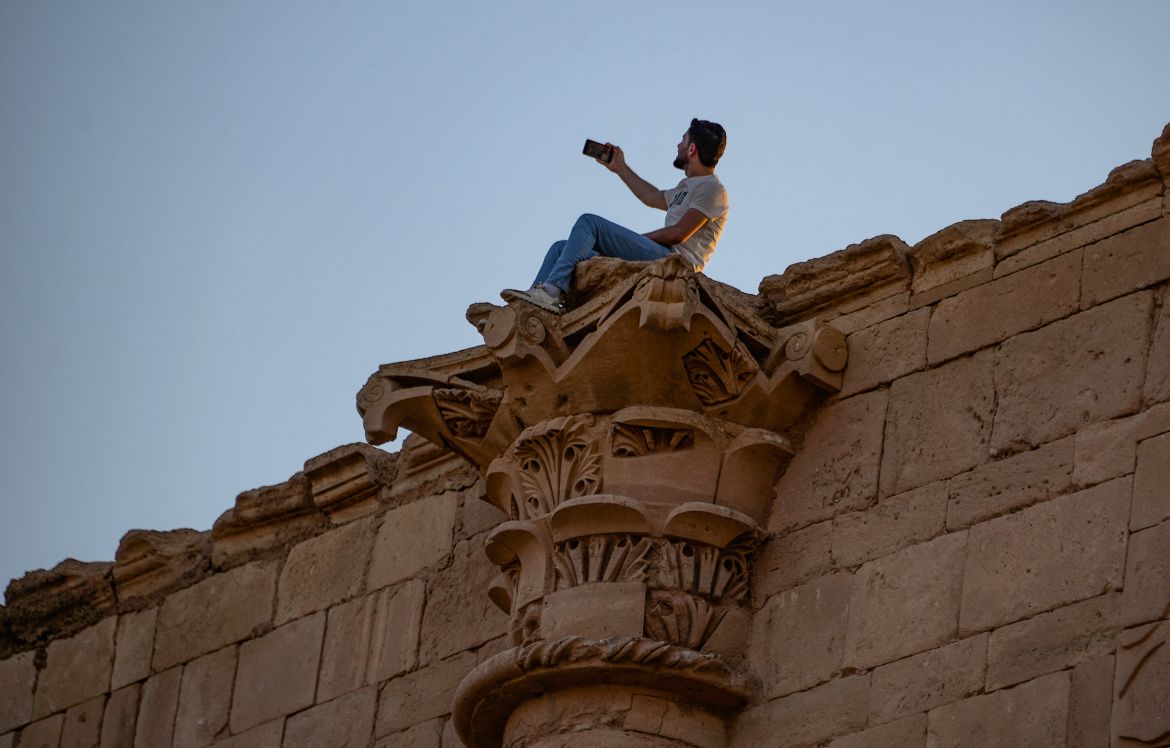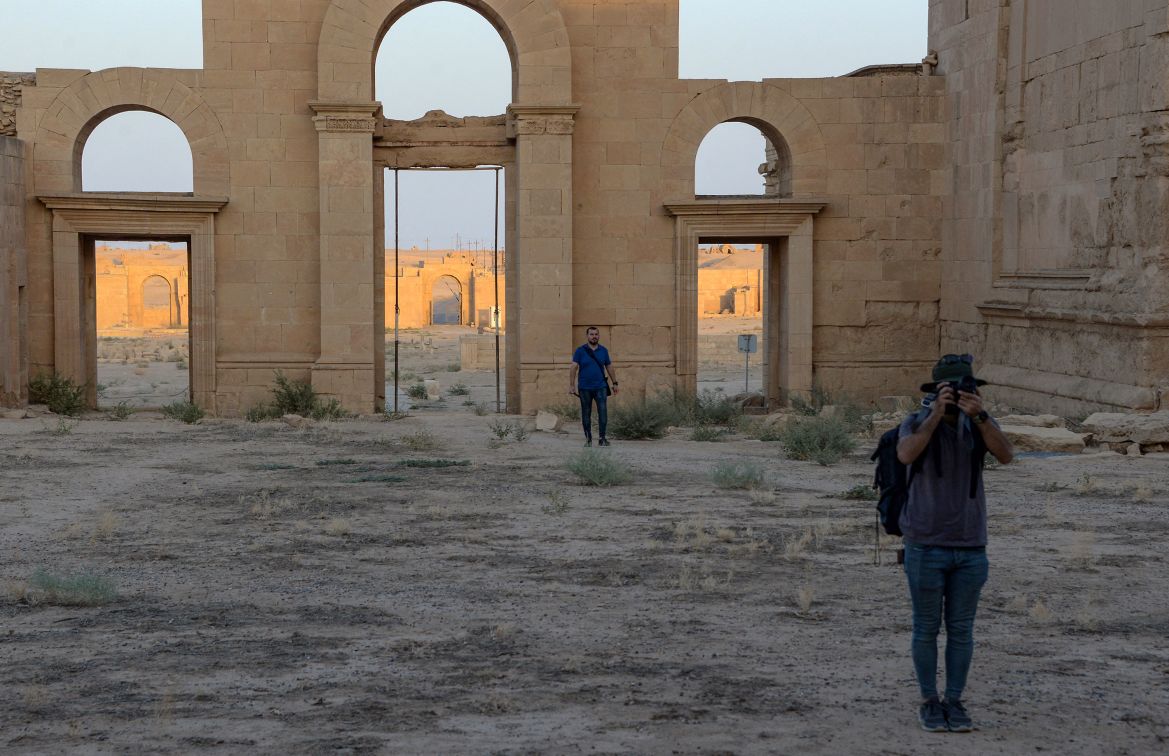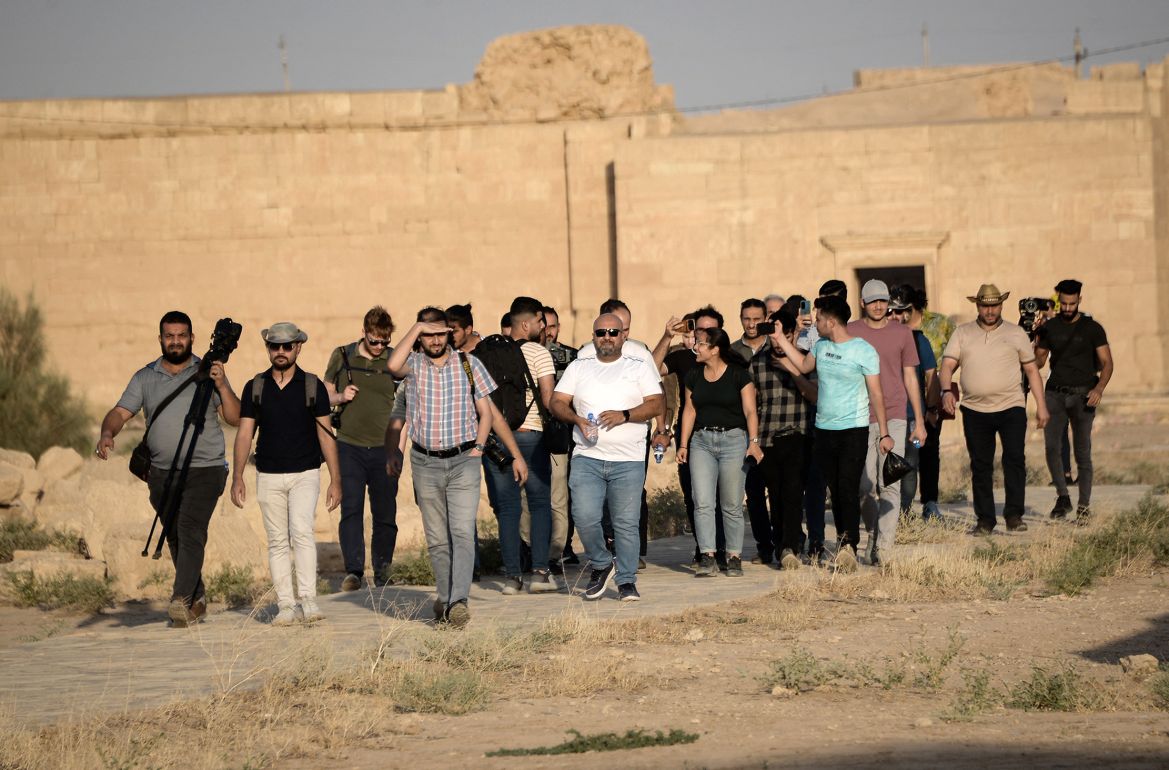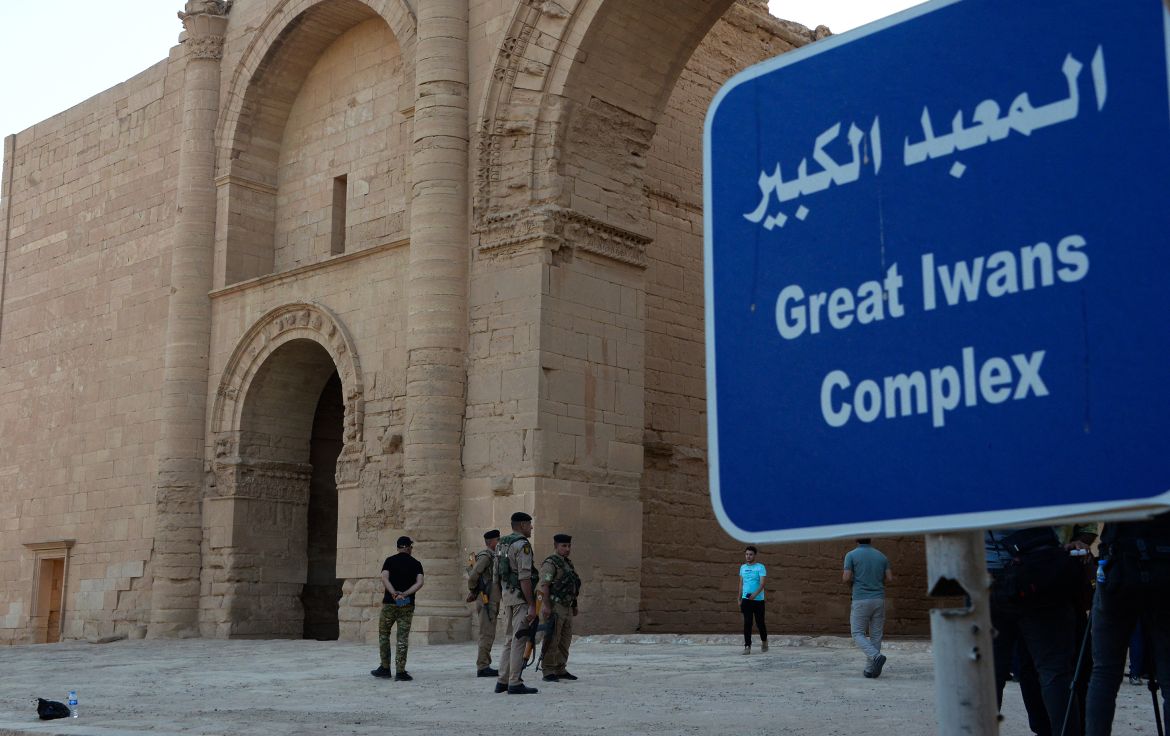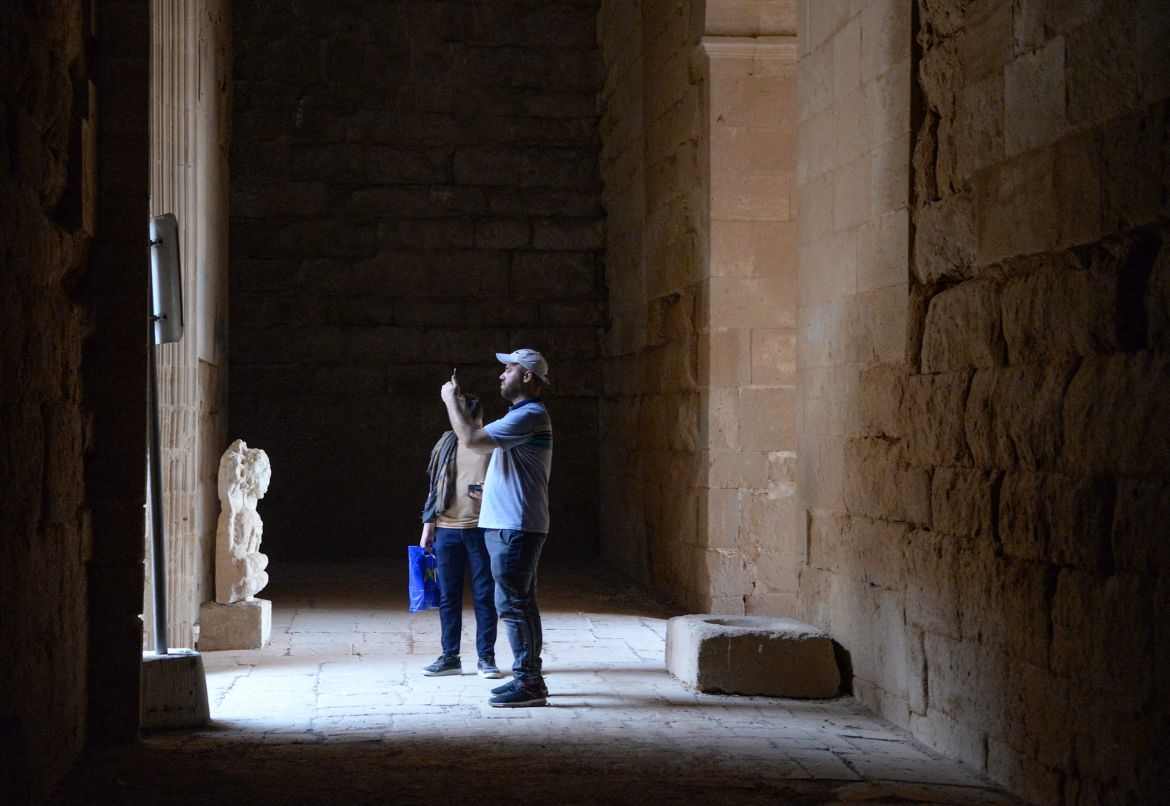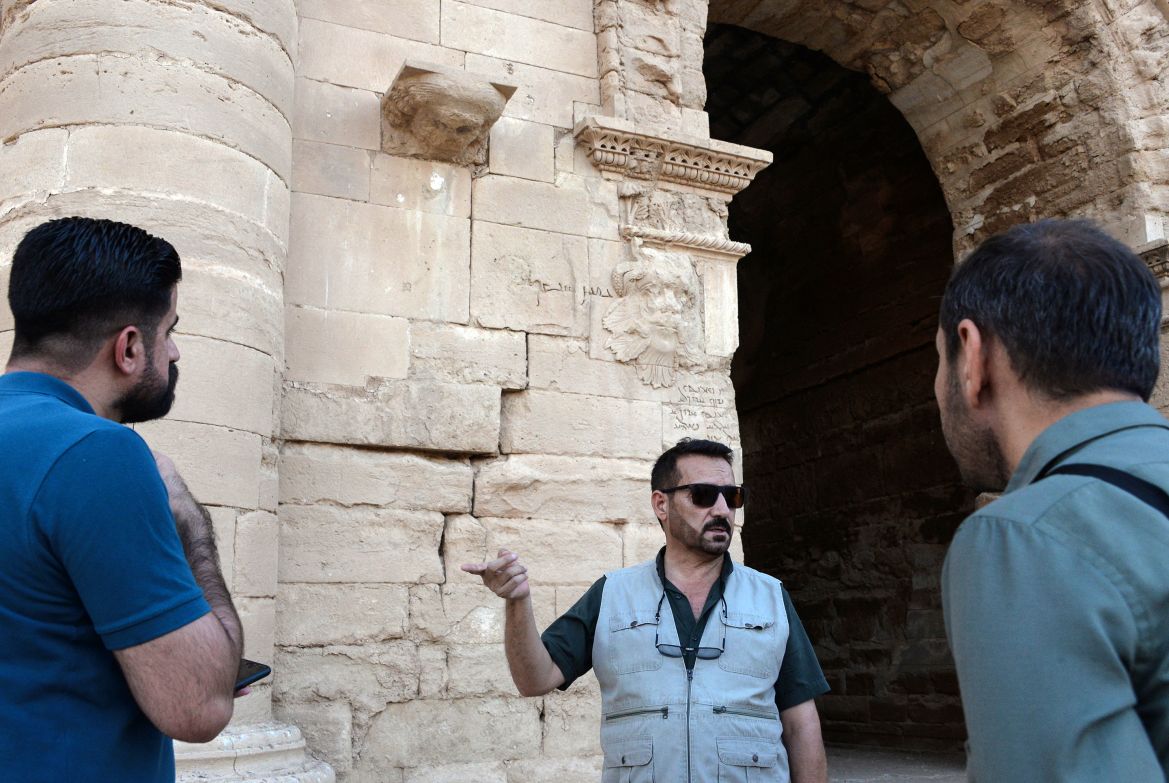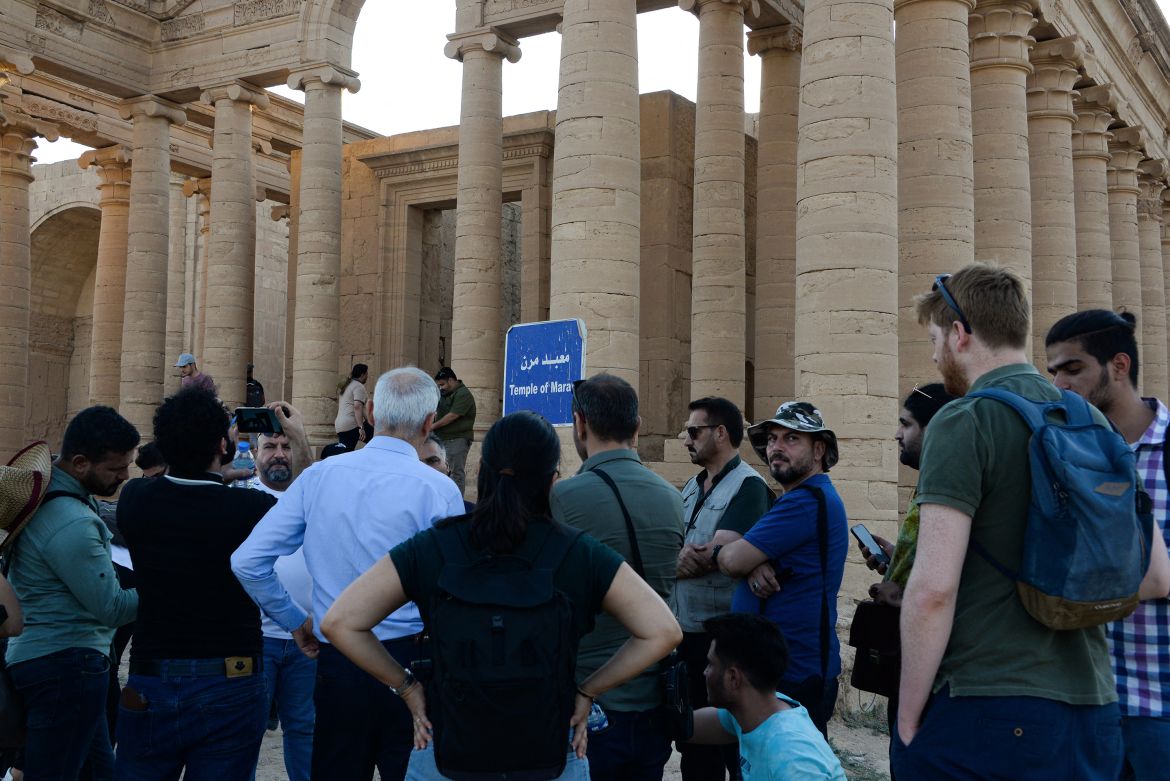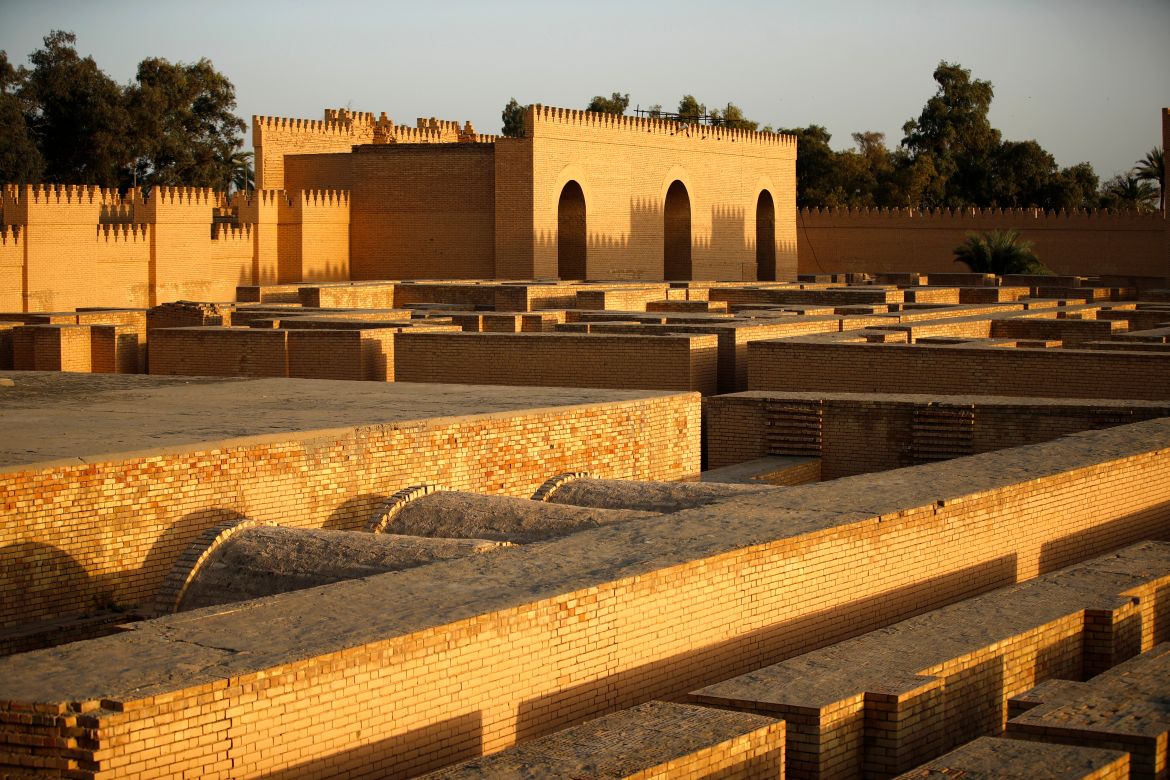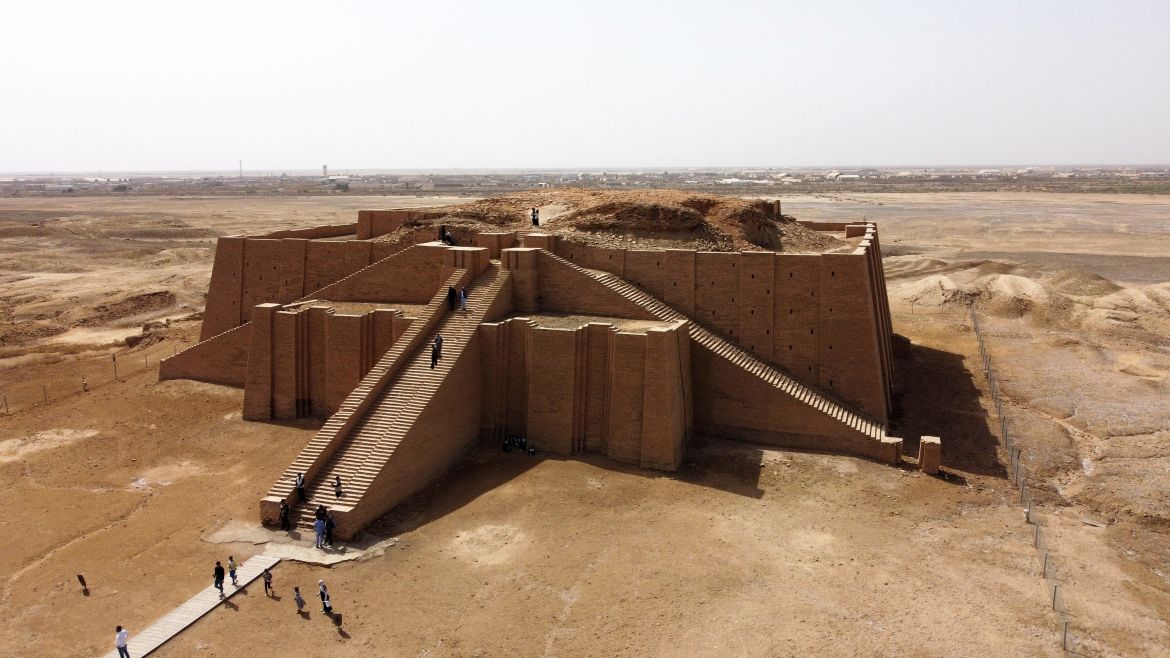In Pictures
Five years after ISIL defeat, Iraq ancient ruins open to tourists
Designated an endangered World Heritage Site by UNESCO, Hatra dates back to the second and third centuries BC.
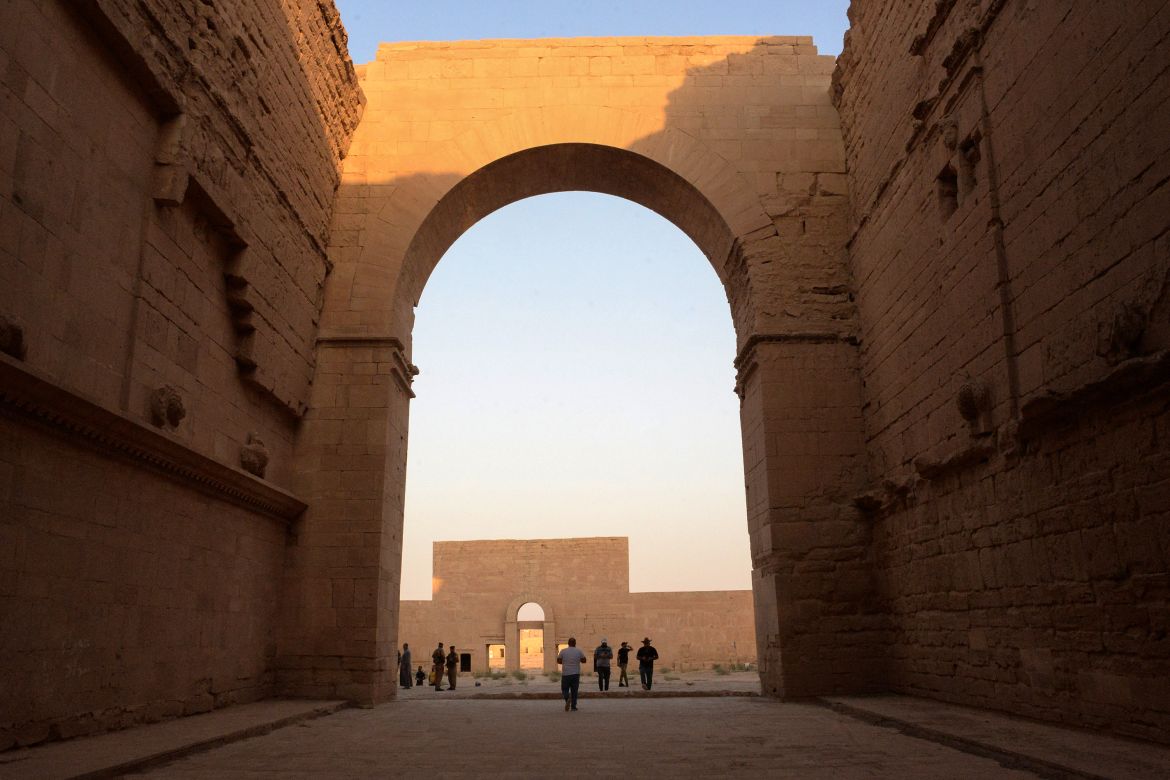
Strolling along the ancient ruins of Hatra in Iraq’s north, dozens of visitors admired the site, where local initiatives seek to turn over a new leaf after a brief but brutal rule by the ISIL (ISIS) group.
Designated an endangered World Heritage Site by the United Nations Educational, Scientific and Cultural Organization (UNESCO), Hatra dates back to the second and third centuries BC.
It is a two-hour drive from Mosul, the former “capital” proclaimed by the ISIL group, which was recaptured in 2017 by Iraqi forces and an international coalition that backed them.
A tour of the site on Saturday, the first of its kind organised by Mosul Heritage House, a private museum in Mosul, aimed to boost tourism in the area.
But even before it, the site drew individual visitors, according to one of the organisers, Fares Abdel Sattar, a 60-year-old engineer.
This new initiative seeks to “showcase the heritage and identity” of Mosul and its broader Nineveh province, he said.
Some 40 visitors, most of them Iraqis, were allowed to walk around the more than 2,000-year-old archaeological site in the golden hour of twilight.
An important religious and trading centre
An important religious and trading centre under the Parthian empire, Hatra had imposing fortifications and magnificent temples, blending Greek and Roman architectural styles with oriental decorative elements.
In February, the authorities unveiled three restorations at the site: a Roman-style sculpture of a life-size figure and reliefs on the side of the great temple.
In 2015, ISIL released a video showing its fighters destroying a series of reliefs, firing at them and hacking away at a statue with a pickaxe.
Five years after the defeat of ISIL, rehabilitation efforts suffer setbacks and many areas still bear the scars of the fight against the armed group that captured large parts of Iraq and neighbouring Syria.
As Iraq gradually opens up to foreign tourism, dozens of visitors – particularly from the West – are now exploring the country, with some even venturing into Mosul.
The Hatra group are pioneers, visiting at a time when the United States, United Kingdom and other governments are warning their citizens against travel to Iraq, citing the risks of terrorism, kidnapping, armed conflict and civil unrest.
Religious tourism to the Shia holy cities of Karbala and Najaf has been thriving, mostly from Iran.
However, challenges remain and tourist infrastructure is still basic in Iraq, a country rich in oil but ravaged by decades of conflict. Since the US military intervention in 2003, the Middle Eastern country has become a battleground for competing militias jostling for control while its politics has been paralysed by sectarianism and corruption.
